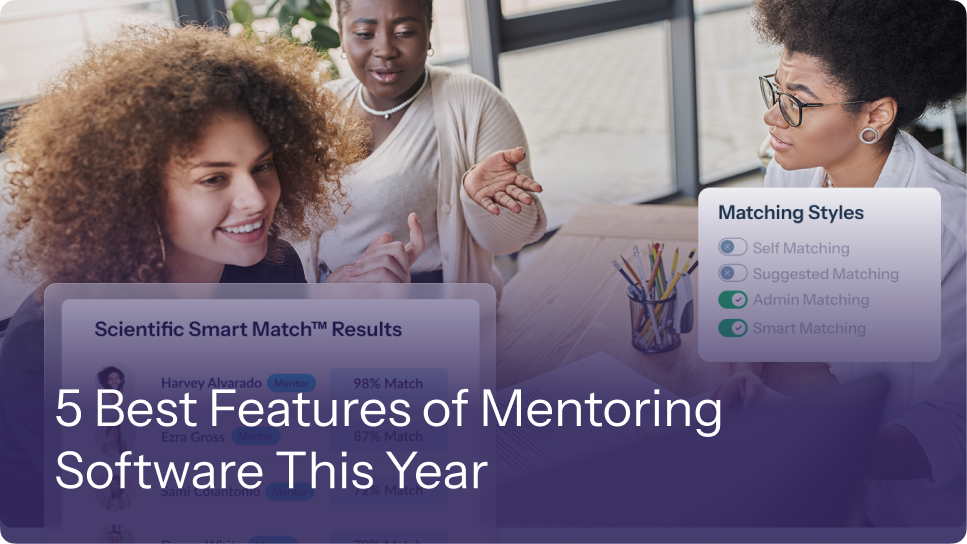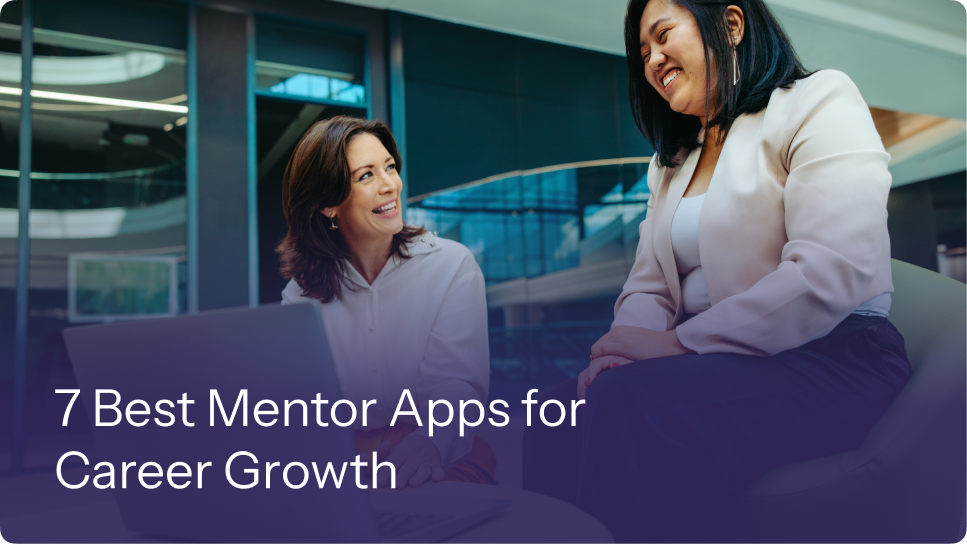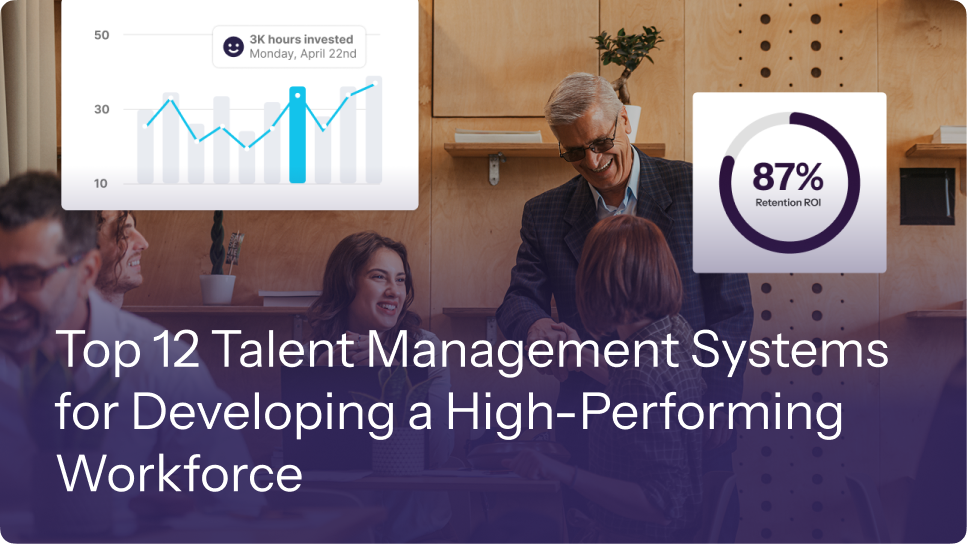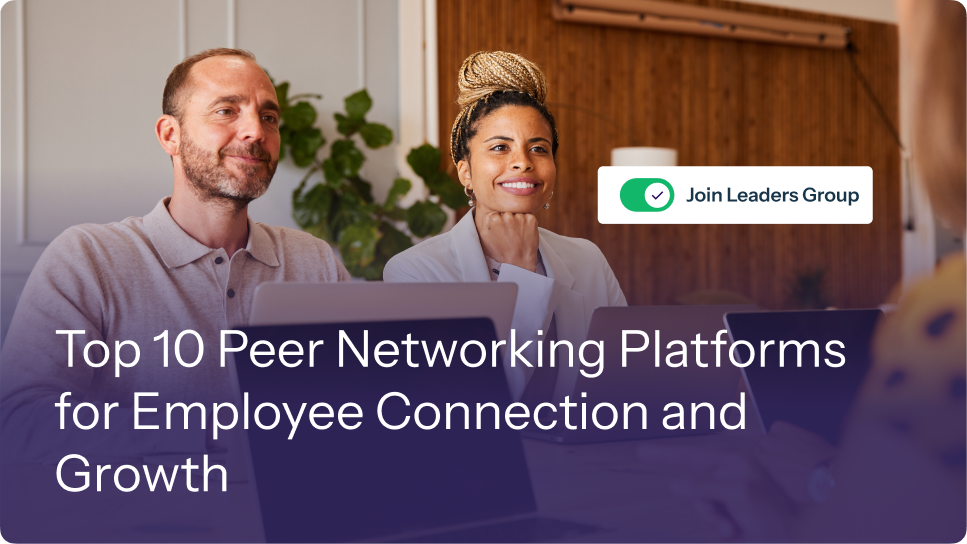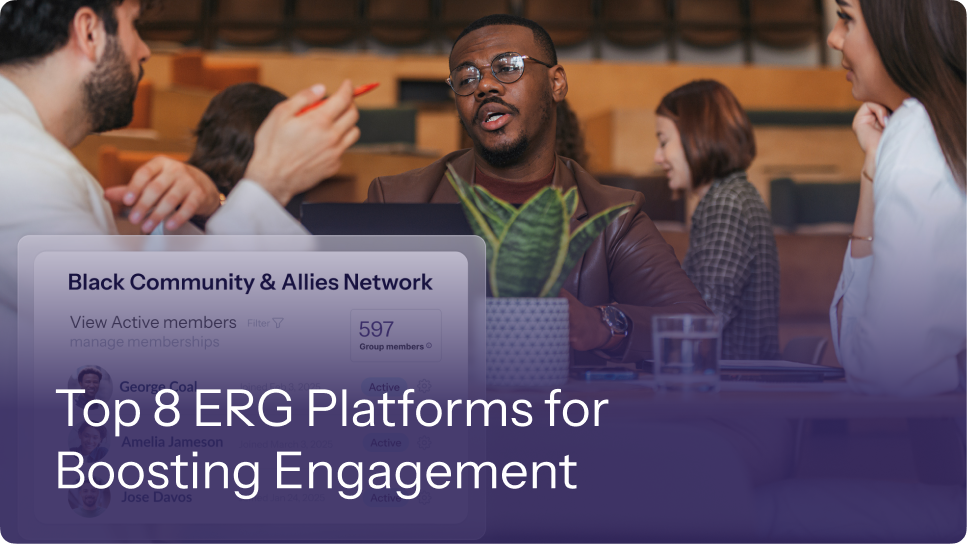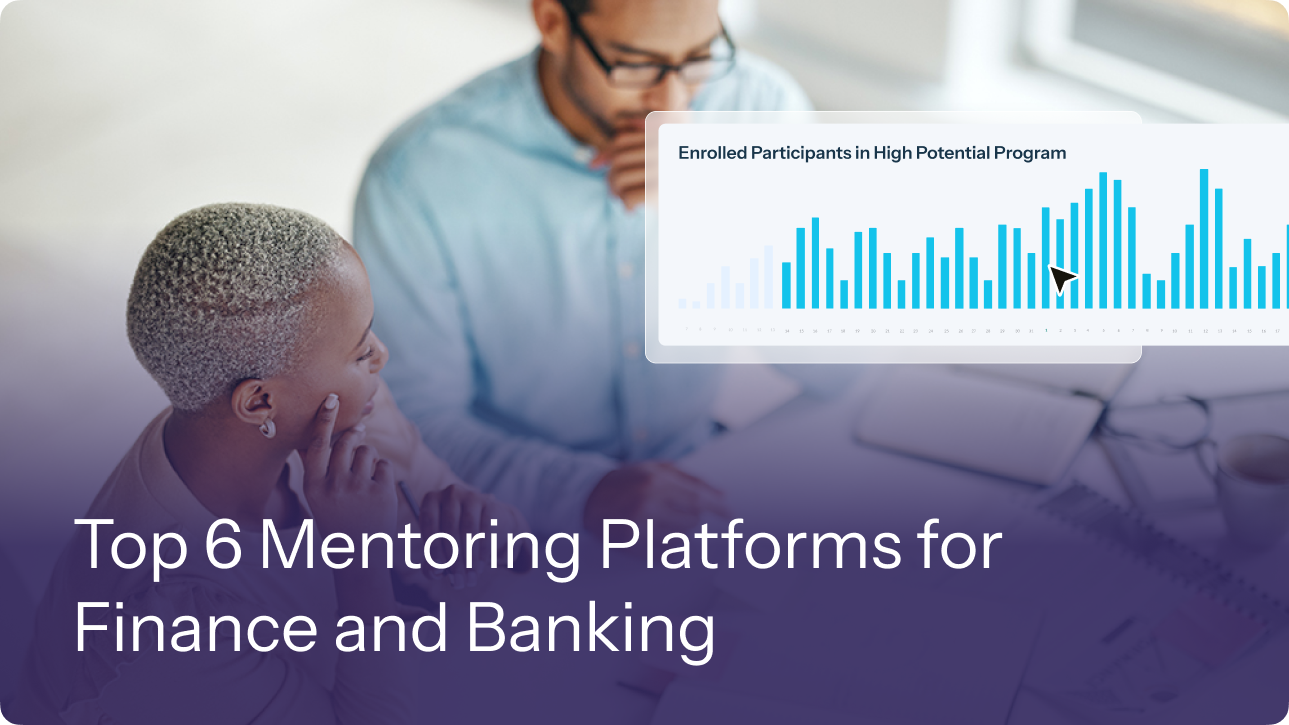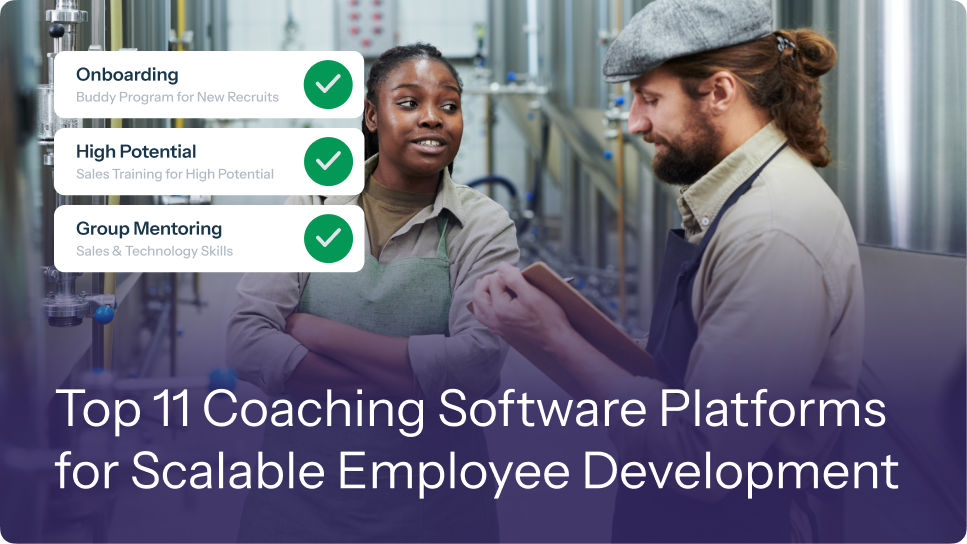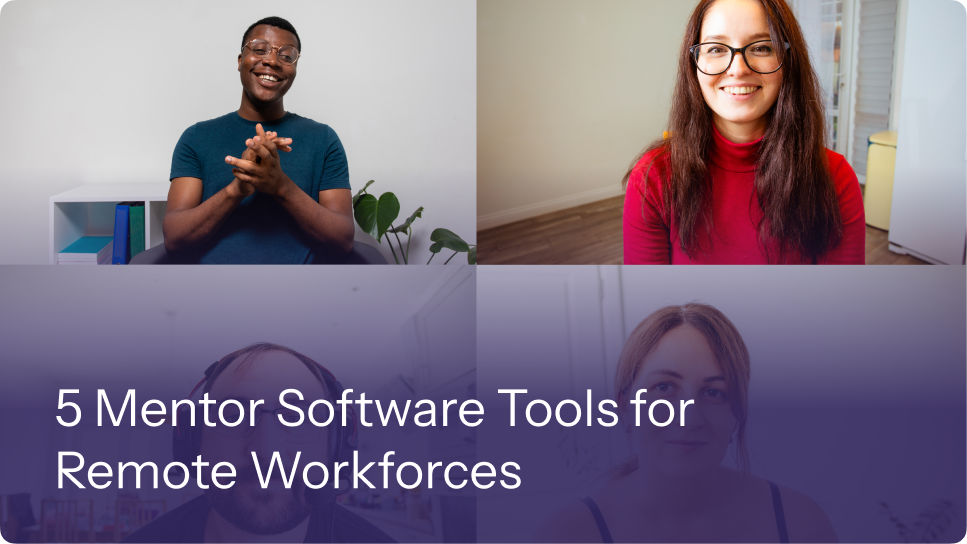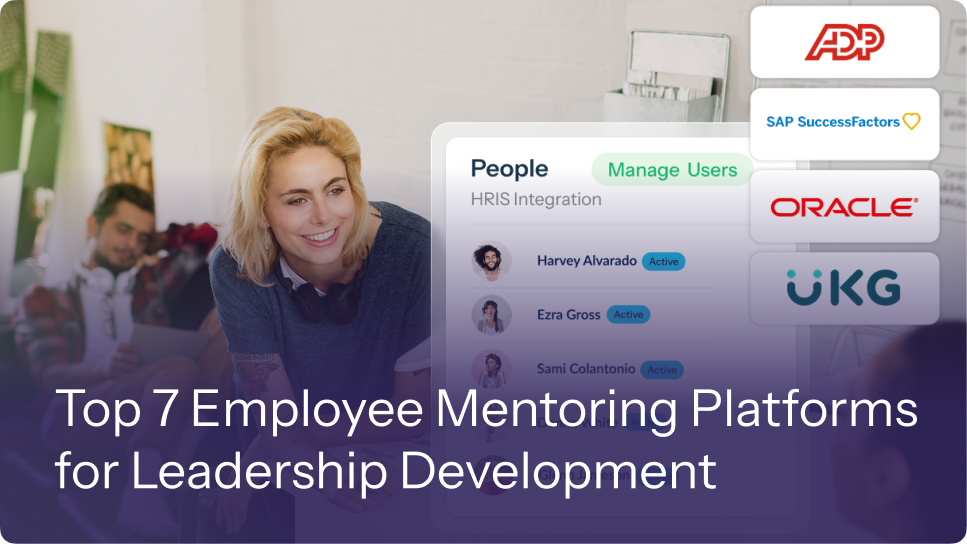The expectations for employee development have evolved. In today’s hybrid and global workplaces, organizations need structured, data-driven approaches to keep employees connected, supported, and growing. Mentoring remains one of the most effective ways to achieve that. When supported by technology, it becomes scalable, measurable, and aligned with business objectives.
40% of companies are using now leveraging technology to improve the impact mentoring programs and coaching programs in a remote and virtual setting. That shift reflects how essential mentoring software has become in helping organizations manage programs that drive retention, engagement, and diversity outcomes. The best mentoring software platforms in 2026 go beyond scheduling and matching. They automate administration, integrate with enterprise systems, and deliver analytics that show tangible impact.
What Is Mentoring Software?
A mentorship software platform connects mentors and mentees, automates matching, and tracks progress over time. It replaces manual spreadsheets and scheduling with a structured digital environment that supports growth and belonging.
Modern mentoring platforms allow HR and DEI teams to scale programs across departments, time zones, and demographics. They also provide analytics that link mentoring participation to measurable outcomes such as retention, engagement, and promotion rates.
Why Mentoring Software Matters in 2026
Employees involved in mentorship programs have a 50% higher retention rate than those who are not. In a hybrid workforce, technology is the link that makes mentoring accessible, consistent, and measurable.
Organizations now expect mentoring initiatives to do more than facilitate introductions and support mentoring relationships. The right platform supports leadership pipelines, enables inclusive development opportunities, and delivers data to prove return on investment.
Best Features of Mentoring Software This Year
The best mentoring software platforms in 2026 share a focus on automation, accessibility, and actionable insight. These key features help administrators reduce workload while giving employees meaningful mentoring experiences that easily demonstrate program success.
AI-Powered Matching
AI matching reduces bias and increases accuracy in mentor mentee matching. By analyzing skills, goals, and engagement patterns, AI-driven systems build stronger, more productive relationships.
Built-In Reporting and Analytics
Analytics dashboards help HR and DEI teams monitor participation, satisfaction, and retention outcomes. These insights turn mentoring into a measurable development strategy rather than a soft-skill initiative.
Program Automation
Automation removes administrative barriers. Scheduling, reminders, and progress tracking now happen in the background, allowing program managers to focus on strategy instead of logistics.
Integration Capabilities
Effective mentoring software integrates with HRIS, learning systems, and collaboration tools. Seamless integration increases participation rates and ensures data consistency.
Scalability and Flexibility
Scalable mentoring software supports multiple formats — one-to-one, group, peer, or reverse mentoring. Flexibility is key to meeting the diverse needs of global organizations.
DEI and Accessibility Tools
Inclusive design, demographic reporting, and accessibility compliance are now standard expectations. These tools help organizations promote equity and belonging through mentoring.
Top Mentoring Software Platforms With These Features
The following mentoring software platforms demonstrate how these features work in practice. Each applies AI, analytics, and automation in different ways to improve engagement and results.
1. MentorcliQ
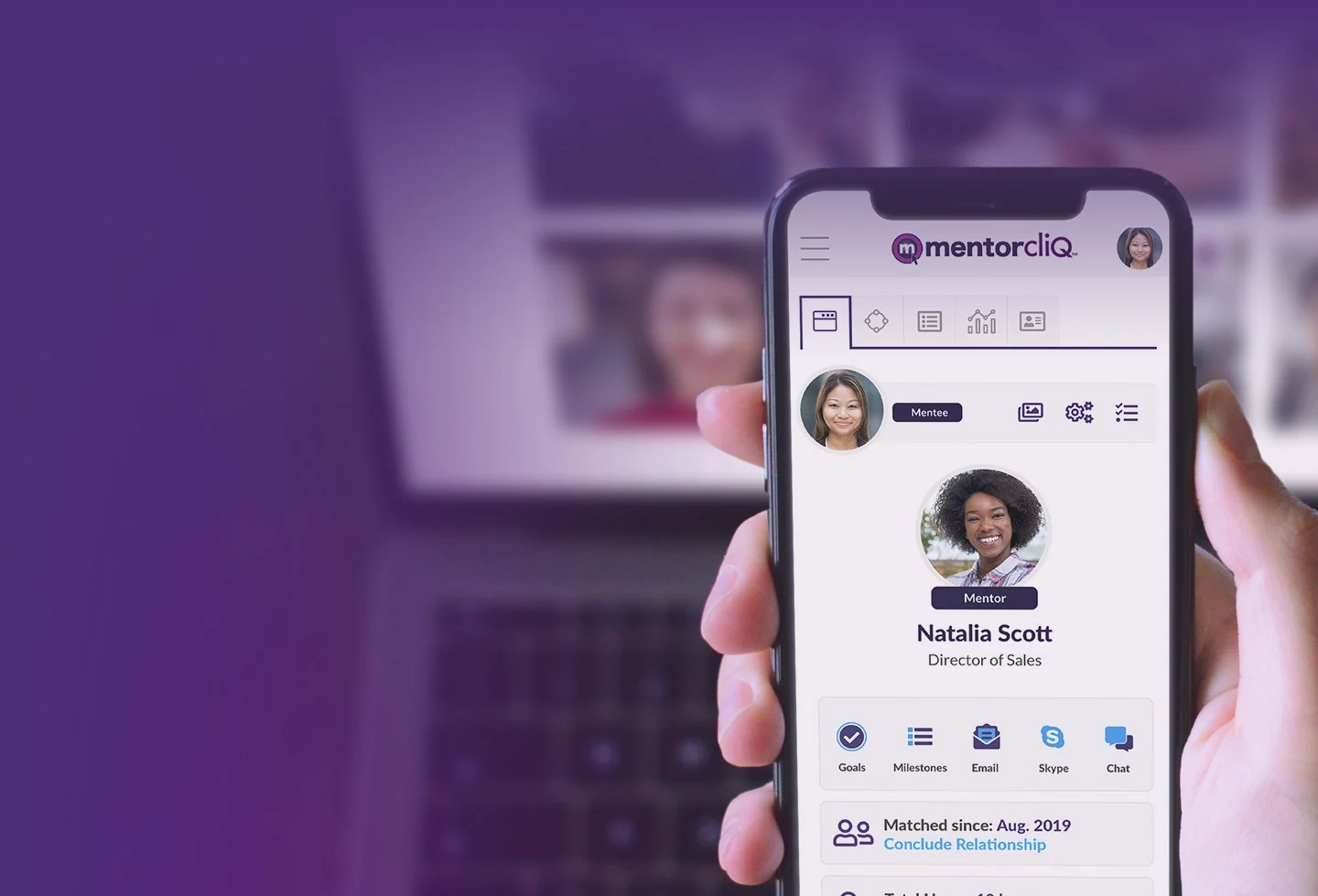
MentorcliQ continues to set the standard for mentoring software innovation. Its AI-powered matching connects mentors and mentees based on skills, goals, and engagement potential. Advanced automation simplifies scheduling, progress tracking, and communication, while analytics dashboards show clear links between mentoring and organizational outcomes.
Feature Highlights:
- AI-Powered Matching: Intelligent pairing based on goals and development needs.
- Automation Tools: Streamlined reminders, scheduling, and reporting.
- Analytics Dashboard: Real-time visibility into participation and ROI.
Best for: Global enterprises seeking scalable mentoring programs that deliver measurable impact.
2. Together Platform
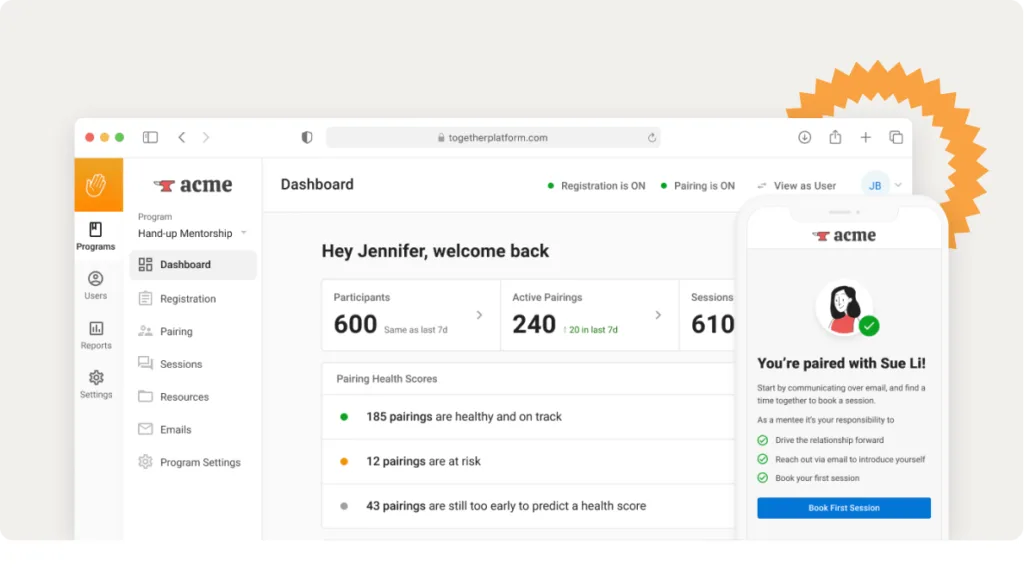
Together uses structured workflows and intuitive automation to simplify mentoring management. Its smart matching system connects employees through goal-based pairing, while built-in reminders keep programs active without manual oversight.
Feature Highlights:
- Smart Matching: Skill and goal alignment for effective pairing.
- Workflow Automation: Guided steps and nudges to maintain engagement.
- Reporting Tools: Participation and satisfaction tracking for HR teams.
Best for: Mid-sized organizations expanding structured mentoring programs.
3. Chronus
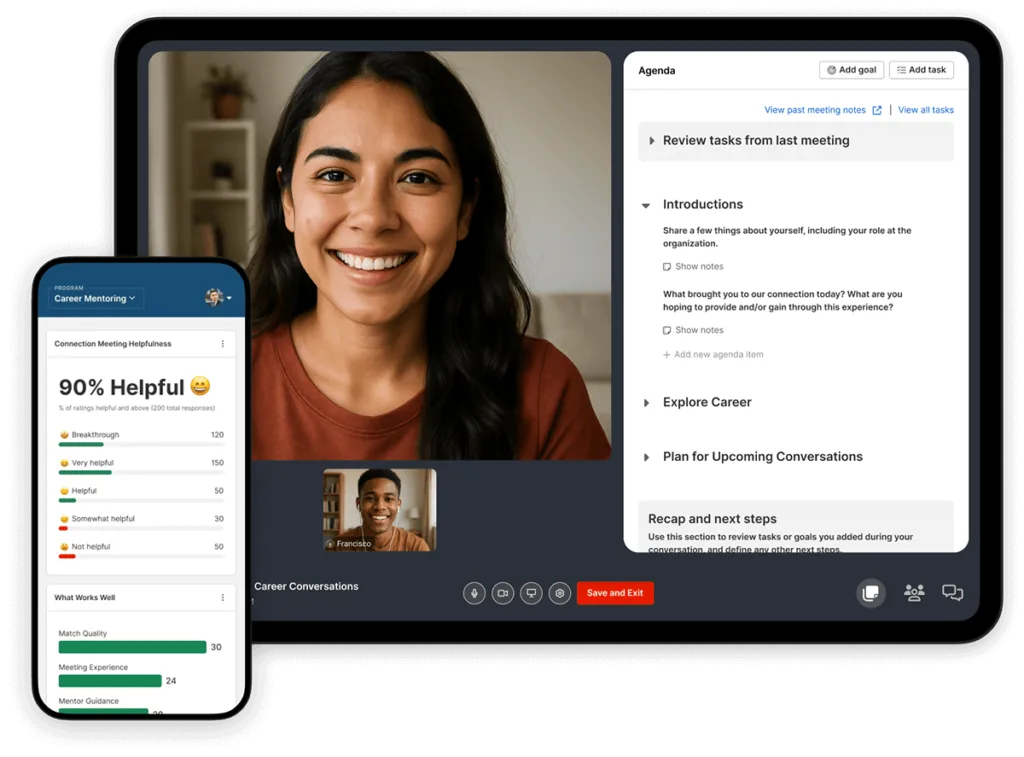
Chronus combines AI matching and automation to support large, multi-program mentoring ecosystems. The platform’s analytics provide a complete view of engagement across departments and regions, allowing organizations to measure outcomes with precision.
Feature Highlights:
- AI Matching: Algorithmic pairing that reduces bias and improves fit.
- Program Automation: Templates, reminders, and task tracking.
- Analytics: Performance metrics across programs and locations.
Best for: Enterprises managing complex mentoring programs across multiple business units.
4. Qooper
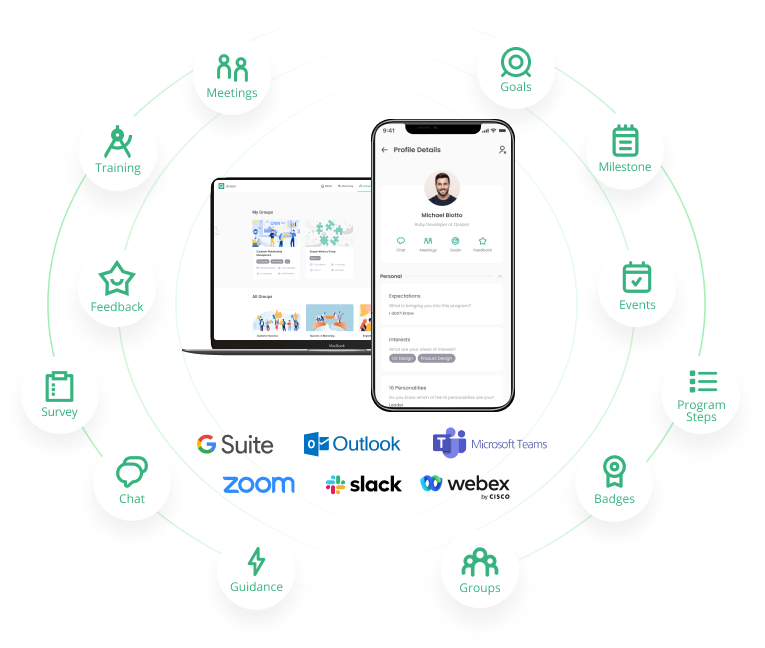
Qooper emphasizes inclusivity and engagement through DEI-focused analytics and accessible mobile tools. The platform’s automated reminders and feedback loops keep mentors and mentees accountable, while its data dashboards help HR leaders measure program reach.
Feature Highlights:
- DEI Analytics: Tracks participation across diverse demographics.
- Mobile Automation: Encourages ongoing engagement through the app.
- Goal Tracking: Structured pathways for continuous development.
Best for: Organizations embedding mentoring within DEI and leadership initiatives.
5. Mentorloop
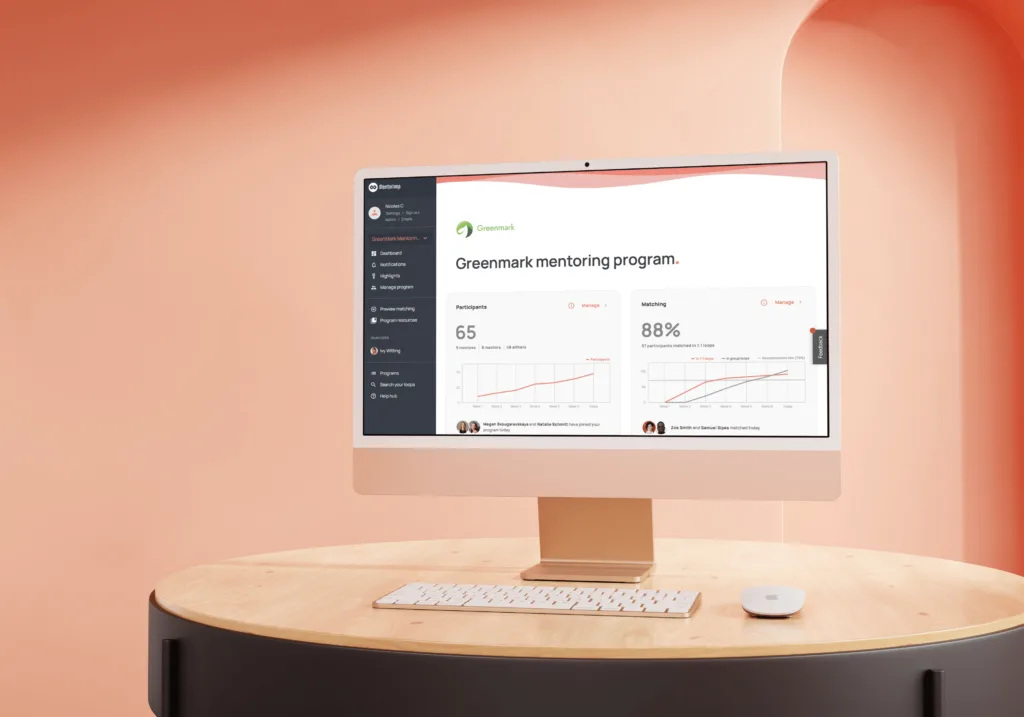
Mentorloop delivers an accessible, user-friendly approach to digital mentoring. Its automation features support program setup and communication, while simple dashboards visualize progress and engagement trends.
Feature Highlights:
- Matching Tools: Quick setup for mentor-mentee pairing.
- Progress Tracking: Dashboards showing milestones and outcomes.
- Program Automation: Auto-reminders and feedback collection.
Best for: Smaller organizations or teams starting structured mentoring programs.
Benefits of Using Mentoring Software
Mentoring software brings structure, scale, and visibility to what was once an informal process. By automating administration and capturing data, it gives HR and DEI leaders the insight they need to prove mentoring’s business value. The benefits extend across engagement, performance, inclusion, and retention — all measurable through modern analytics.
Employee Engagement
Mentoring software strengthens engagement by helping employees feel seen and supported. Automated matching connects people across functions and locations, creating relationships that drive motivation and belonging. In organizations using mentoring technology, participation rates are higher and mentors stay more actively involved.
Skills Development
Digital mentoring programs provide structured opportunities for skill building. Features like goal tracking, progress dashboards, and curated learning resources guide development over time. This visibility allows managers to align mentoring outcomes with broader talent strategies, ensuring that programs support leadership readiness and internal mobility.
Inclusive Development
Technology helps remove the bias and inconsistency that can appear in traditional mentoring. AI-powered matching and demographic reporting allow DEI teams to create equitable access to mentoring opportunities. Inclusive design also ensures that programs support employees across regions, time zones, and accessibility needs.
ROI Visibility
Analytics transform mentoring from a soft initiative into a measurable business investment. Dashboards track participation, satisfaction, promotion rates, and retention impact. These metrics demonstrate the tangible value of mentoring to leadership, strengthening support for continued investment.
Program Scalability
Mentoring software enables organizations to manage multiple programs simultaneously, from onboarding support to executive development. Automated reminders and integrated communication tools mean programs can grow without additional administrative burden. This scalability allows mentoring to become an embedded part of company culture, not a limited HR project.
Why the Right Features Matter for Modern Mentoring
Mentoring continues to be one of the most effective ways to develop people, foster belonging, and retain talent. But the expectations placed on HR and DEI teams have changed. Leaders now need to demonstrate measurable impact — showing how mentoring contributes to performance, engagement, and equity goals.
That’s where technology plays a defining role. Modern mentoring software transforms informal mentoring into a structured, data-backed strategy that scales. Features like AI matching, automation, and analytics mean program managers can focus on people, not paperwork. Integrations and accessibility tools ensure mentoring is consistent across geographies and inclusive of every employee, regardless of location or seniority.
MentorcliQ leads the field in mentoring software this year. Its combination of automation, analytics, and AI helps organizations manage global programs efficiently while proving measurable ROI. For HR and DEI leaders, it provides the visibility and scalability needed to maintain strong development cultures in complex workplaces.
Book a Demo with MentorcliQ to see how your organization can simplify mentoring administration, measure outcomes, and build a culture of development and belonging.**



